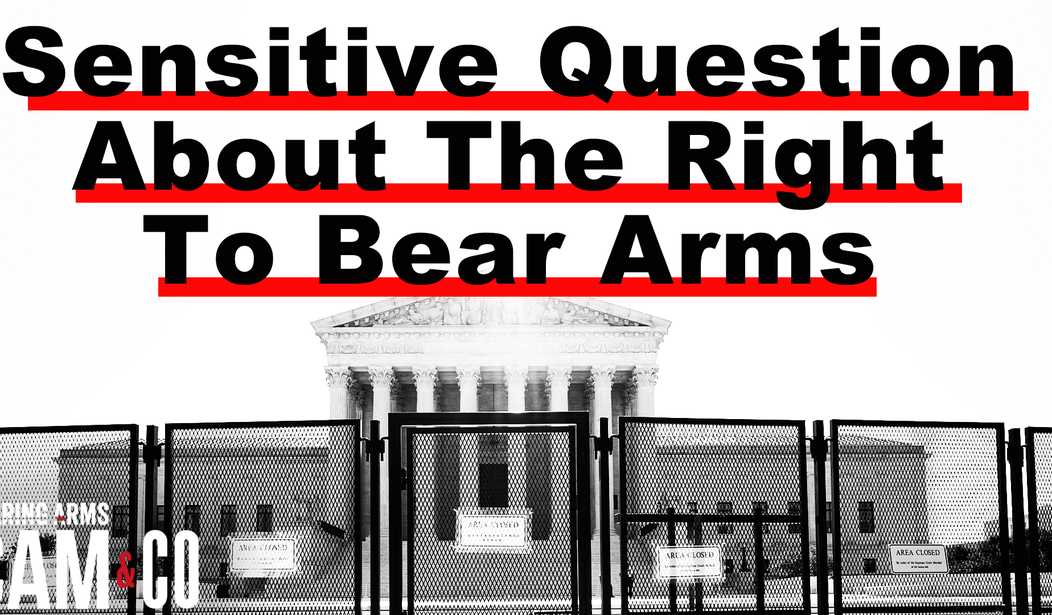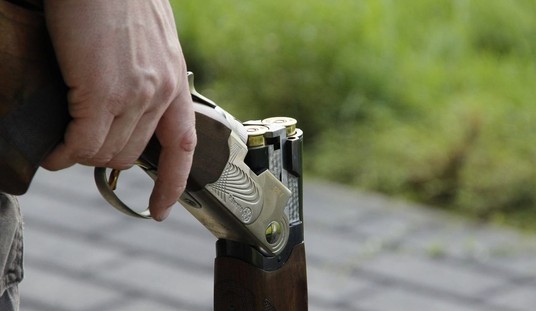Tomorrow morning I’ll once again be hanging out on the Supreme Court’s website, eagerly refreshing the page where new opinions are listed as I’ve done several times over the past few weeks hoping to see the Court’s decision in New York State Rifle & Pistol Association v. Bruen listed. I will confess that I’m not expecting the decision to come out tomorrow (I think it will be one of the last opinions to be released, likely in early July), but the Court could surprise me and we’ll have full coverage here at Bearing Arms on the off chance that tomorrow is the day.
We do know that even if tomorrow comes and goes without the Bruen opinion being released, the decision is coming down soon, and gun control activists and anti-gun politicians are already busy looking for ways to undermine the right to bear arms if, as expected, a majority of justices strike down New York’s “may issue” carry laws as a violation of the Constitution by precluding the average citizen from bearing arms in self-defense. Instead of trying to limit who can carry, the gun prohibitionists appear to have settled on a strategy to limit where they can do so without breaking the law.
“‘Sensitive places’ is the next major Second Amendment battleground,” said Adam Winkler, a UCLA School of Law professor. “States like New York and California that currently restrict concealed carry pretty severely are not just going to throw up their hands and surrender.”
No they’re not. They’re going to continue to interpose themselves between citizens and their civil rights, even if that puts them on the wrong side of history and the Constitution.
The “sensitive places” argument that Winkler references springs from a line in the majority opinion in D.C. v. Heller authored by Antonin Scalia, in which the late justice declared that “the Court’s opinion should not be taken to cast doubt on longstanding prohibitions on the possession of firearms by felons and the mentally ill, or laws forbidding the carrying of firearms in sensitive places such as schools and government buildings…”
Gun control activists are seizing on that language to argue that, if “may issue” carry laws are struck down, then as many publicly-accessible spaces as possible should be declared “sensitive” and off-limits to law-abiding citizens legally bearing arms.
A federal appeals court struck down a similar requirement in Washington, D.C., in 2017. The city, which for years had among the strictest gun laws in the nation, now issues licenses to carry concealed handguns but has a lengthy list of places where guns are prohibited, including in public transit, polling places, churches and synagogues, hospitals and within private businesses that post “conspicuous signage” barring guns.
Virginia passed a law two years ago giving local governments broad power to prohibit guns in parks, community centers and streets and sidewalks next to events.
“If the Supreme Court endangers public safety by wrongly overturning New York’s public carry licensing law, lawmakers’ to-do lists should start with fixes to keep guns out of sensitive places like bars, parks, and government buildings,” said Shannon Watts, founder of Moms Demand Action, which advocates for strong gun laws.
In other words, as many “gun-free zones” as possible, which I’m sure thrills all those with evil intentions in their hearts. After all, the more victim disarmament zones in place, the less likely it is that any of those monsters will run across an armed citizen able and willing to protect themselves and others.
We know how far the gun prohibitionists are willing to go to try to block law-abiding citizens from exercising their Second Amendment rights, but will the Supreme Court give them any wiggle room to do so? As USA Today notes, several of the justices did seem interested in exploring the “sensitive places” topic during oral arguments last November, but no member of the conservative wing of the Court appeared open to the kind of broad definition sought by Watts and other anti-gun activists.
Paul Clement, a former solicitor general in President George W. Bush’s administration who argued the New York case for the plaintiffs, told the justices he was “a little bit reluctant” to embrace the idea that government-provided security alone should be the threshold to justify banning guns in specific places. Under that rubric, he said, cities might try to prohibit guns broadly in, say, entire neighborhoods by pointing to large police forces.
Instead, Clement suggested federal courts consider whether the building or space at issue prohibits all weapons and not just guns, whether it allows anyone through the doors or restricts access and whether it’s a space where “weapons are out of place.”
The impact of the court’s ruling depends on its scope. A majority could decide that the presumption baked into New York’s rules – that most residents are not entitled to carry a gun – is unconstitutional. That more limited ruling would implicate similar laws in eight other states – including California, New Jersey and Massachusetts – that together make up a quarter of the nation’s population.
But the justices could go further and rule that the Second Amendment guarantees a right to carry a handgun in public, just as they ruled in 2008 that the Constitution guarantees that right inside the home. That outcome could have more sweeping implications for laws that impose licensing and other requirements.
Either way, experts said the decision will prompt a response from cities and states and – almost certainly – more litigation.
Winkler says we’re likely to see “years of litigation” fleshing out the right to bear arms, but that’s only because most of the left still refuses to acknowledge that it’s a right in the first place. With the culture war raging and the Court likely to overturn Roe v. Wade in the coming weeks (perhaps even on the same day it issues its decision in Bruen), blue-state Democrats are going to view the Second Amendment and the Bruen decision as a primary target for retaliation, and gun owners in those states should get ready for an onslaught of new restrictions aimed squarely at their right of armed self-defense.









Join the conversation as a VIP Member